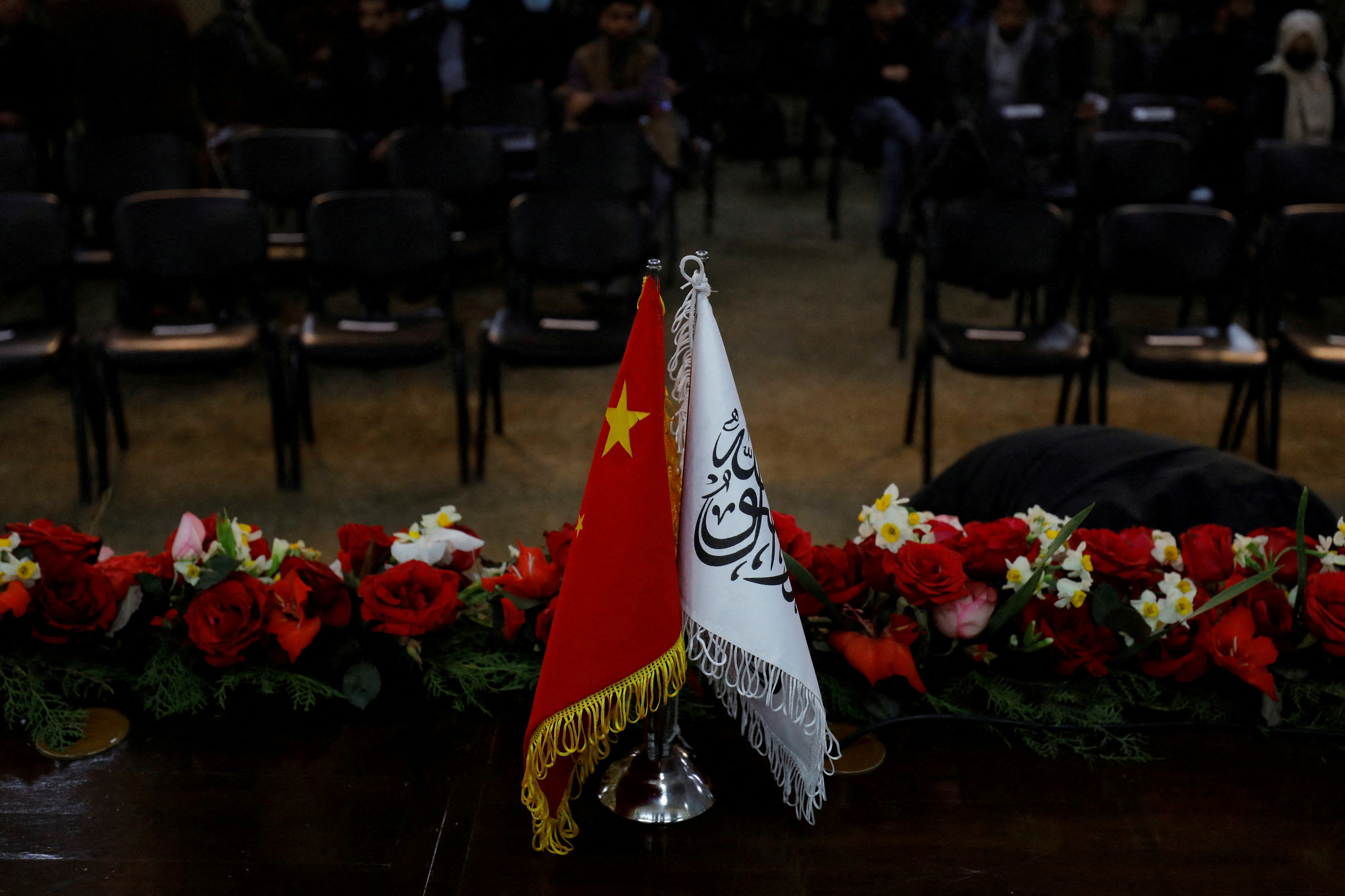The flags of China and the Islamic Emirate of Afghanistan are displayed during a press conference held by Afghan Deputy Prime Minister Mullah Abdul Ghani Baradar and China’s Ambassador to Afghanistan Wang Yu in Kabul, Afghanistan, on January 5, 2023. REUTERS/Ali Khara/File photo Purchase license rights
KABUL, Oct 14 (Reuters) – The Taliban will attend China’s Belt and Road Forum next week, a spokesman said on Saturday, underscoring Beijing’s growing official ties with the administration despite its lack of of formal recognition by any government.
Taliban officials and ministers have sometimes traveled to regional meetings, mainly those focused on Afghanistan, but the Belt and Road Forum is one of the most prominent multilateral summits he has been invited to attend.
The forum in Beijing on Tuesday and Wednesday marks the 10th anniversary of President Xi Jinping’s ambitious global infrastructure and energy initiative, billed as recreating the ancient Silk Road to boost global trade.
The Taliban’s acting trade and industry minister, Haji Nooruddin Azizi, will travel to Beijing in the coming days, ministry spokesman Akhundzada Abdul Salam Jawad said in a text message to Reuters.
“He will attend and invite big investors” to Afghanistan, he said.
The impoverished country could offer a wealth of coveted mineral resources. A mines minister estimated in 2010 that Afghanistan had untapped deposits, ranging from copper to gold and lithium, worth between $1 trillion and $3 trillion. It is not clear how much they are worth today.
China has been in talks with the Taliban over plans, initiated under the previous foreign-backed government, for a potential huge copper mine in eastern Afghanistan.
China’s foreign ministry did not immediately respond to a request for comment.
Azizi will continue discussions in Beijing on plans to build a road through the Wakhan Corridor, a thin mountainous strip in northern Afghanistan, to provide direct access to China, Akhundzada said.
Officials from China, the Taliban and neighboring Pakistan said in May that they would like the Belt and Road to include Afghanistan and China’s flagship economic corridor to Pakistan to extend across the border into Afghanistan .
The Taliban have not been formally recognized by any government since they took control of Afghanistan two years ago, when US and other foreign forces withdrew.
A series of restrictions on women’s access to public life and bans on many women NGO staff from working have increased obstacles to recognition, especially by Western countries, officials and international relations analysts say.
China has increased engagement with the Taliban, becoming the first country to name one ambassador in Kabul since the Taliban took power and invested in mining projects.
Beijing’s ambassador presented his credentials to the Taliban’s acting prime minister last month. Other nations have retained former ambassadors or heads of mission appointed as chargé d’affaires which does not involve formal presentation of credentials to the government.
Reporting by Mohammad Yunus Yawar in Kabul and Charlotte Greenfield in Islamabad; Additional reporting by Joe Cash in Beijing; Edited by William Mallard
Our standards: The Thomson Reuters Trust Principles.

